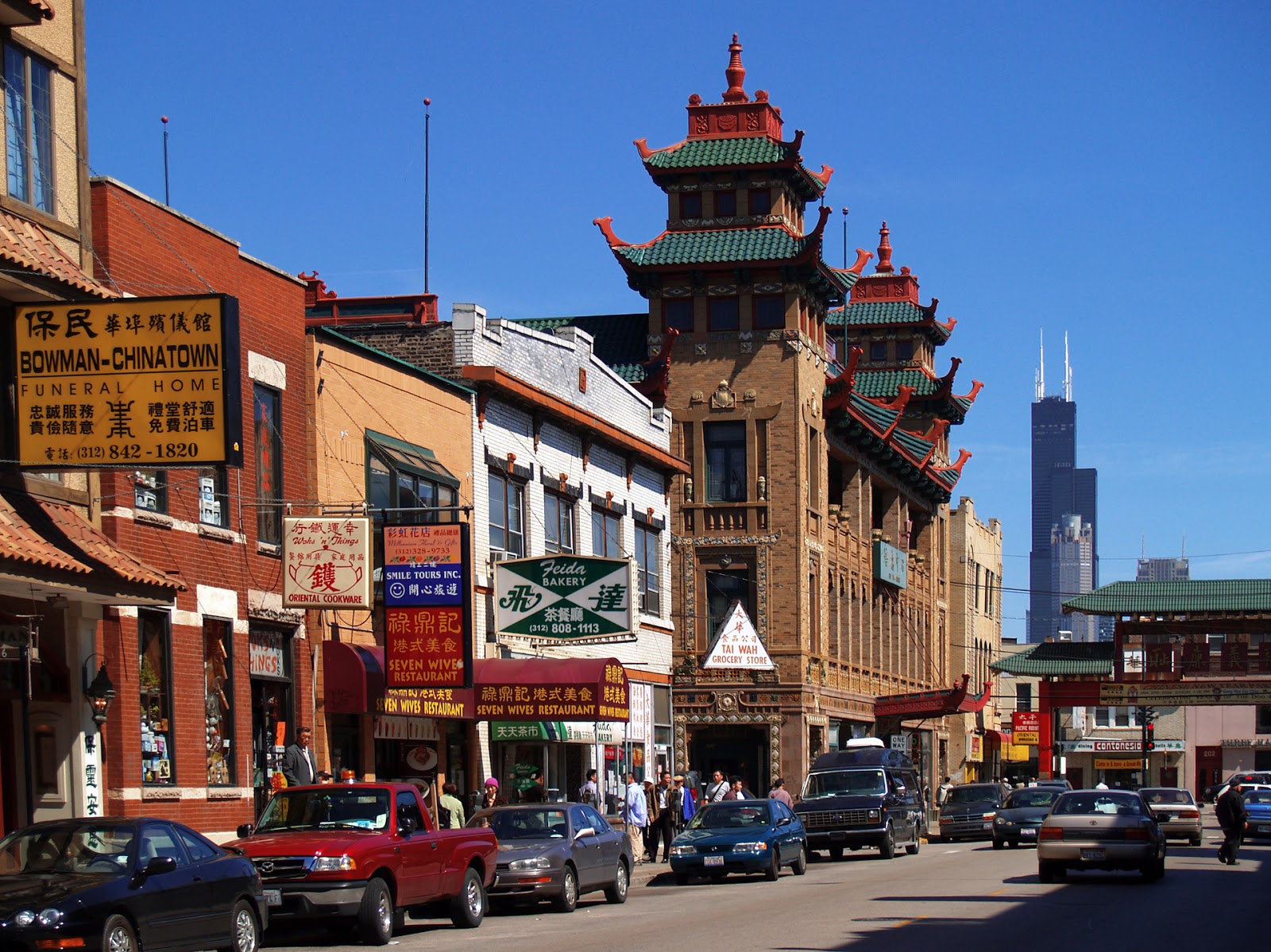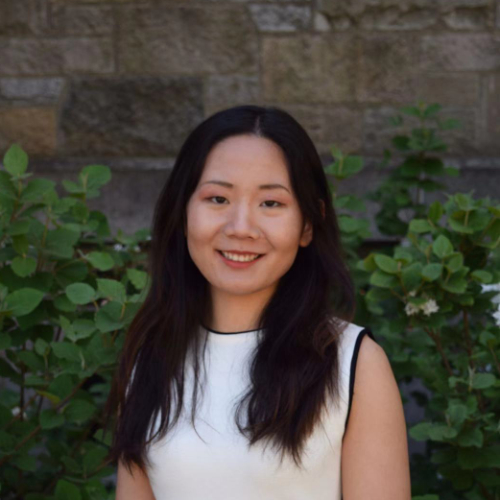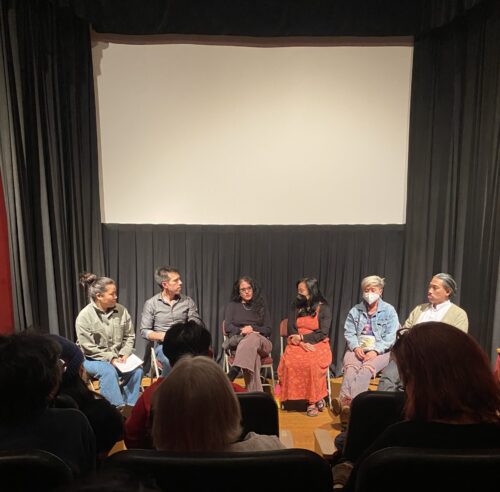‘People are hyped up,’ but how many Chinese Americans will vote in an election like no other?
With U.S.-China relations worsening and Trump blaming a “China plague” for ruining the economy, Chinese immigrant communities are more engaged in this election than ever. Whether that translates into voting, however, remains to be seen.

Throughout 2020, Chinatown residents across the U.S. have been targeted with pandemic-fueled racial aggression and hammered by an economic downturn that has hit Asian-American communities disproportionately hard. With the presidential election approaching rapidly, Chinese immigrant communities have seen few efforts from either political party to reach out to hear their voices. Within those communities, however, the upcoming election has sparked many conversations, largely due to the ongoing U.S.-China political altercation.
“We are all concerned that if the U.S.-China relationship continues like this, how it’s going to impact our future. In the recent decade, we’ve rarely seen so many Chinese concerned for our future,” Haipei Shue, president of United Chinese Americans, said. The latest AAPI Data survey also shows that across the board, 54% of Asian-American voters responding to the survey stated that they were more enthusiastic this year than previous years.
But for many Chinese voters in lower-income areas, a higher level of passion toward the election does not necessarily translate into a higher level of voter participation.
Disenfranchisement: One of many obstacles
Since March, the pandemic has casted an ominous shadow on people’s lives and businesses in Chicago Chinatown. Like other Chinatowns, businesses took a nosedive, Asian Americans’ unemployment rate went through the roof, and East Asian-looking people faced higher rates of verbal and physical attacks. Now, a month away from the election, this community with a median household income of $45,997 — almost half of $87,264, the median household income for Chicago — is feeling disenfranchised.
In previous years, the library located at the center of Chicago Chinatown has always been an early voting site. But due to concerns about the coronavirus, all early voting sites in Chicago for this year’s election have been moved to schools. The closest location is Sheridan Elementary School, roughly one mile from Chinatown.
Chicago Chinatown already struggled with voter turnout: In the 2018 midterm election, 38% of the community’s registered voters participated, compared to the city’s overall 61% turnout. The added physical distance to reach a voting site, even by less than a mile, is an impediment for residents, especially Chinese seniors, to exercise their civil rights.
“We have a lot of seniors [in the] buildings who can’t make it to the other location,” Xiaolin Mei, voter engagement coordinator at the Chicago-based Coalition for a Better Chinese American Community (CBCAC) said. “It’s already hard enough that a lot of seniors don’t feel like they have a voice, [adding] onto the fact that they have to go out of their way to go do early voting.”
According to 2018 census data, 24% of residents in Chicago Chinatown are over 65 years old, followed by 35.6% of the population between the ages of 40 and 64.
Seniors can do mail-in voting, but “that itself is a form of restriction,” Mei explained, because the drop-off boxes are at the same location as the early voting site, and mailing an absentee ballot at the moment is considered to be an unreliable option by many Chinatown residents due to potential delays. “Mail is also super unreliable, how do I know if my vote is counted?” Mei described the seniors’ concerns.
CBCAC has gotten state representatives and an alderman involved in setting up a Chinatown early voting site. But the work is slow, for Chinatown has been split into two different wards under the management of two separate administrative powers since 2013. “You’re separating the voting power of Chinatown,” Mei said. “Now you’re just disenfranchising Chinatown by not having a polling location. What’s up with that?”
During the period of the AAPI Data survey, which ran from July 15 to September 10, 2020, only 12% of Asian Americans reported that they had been contacted by the Democratic Party, and 8% by the Republican Party. Chinese voters ranked the lowest in both categories (7% and 4%). Pew Research Center has estimated that Asian-American communities are “the fastest-growing group of eligible voters among the major racial and ethnic groups in the United States.”
Caution over the coronavirus
Mei pointed out that for many elderly Chicago Chinatown residents, the threat of COVID-19 still looms large. And when it comes to personal safety and political participation, the importance of the former clearly outweighs the latter.
Similar problems are plaguing Chinatowns in other parts of the country.
The president of the United Chinese Association of Brooklyn, Stephanie Wong, said that Bensonhurst, Brooklyn’s second Chinatown and one of the areas that has seen a recent uptick in positive COVID-19 tests in New York City, has seen a steady increase in voter turnout in recent election cycles. This time, the level of motivation is even higher.
“They think that the coronavirus measures the current administration has adopted have not been working, and they believe it’s time for a new leadership,” Wong explained. “Also, people who immigrated from mainland China make up the majority of the population here. Due to the pandemic, we have been subject to discrimination and defamation. So people are hyped up.”
Nonetheless, when asked if voter participation rates will be negatively affected by people’s concern for potential coronavirus infection, Wong asserted that it will, because people, especially seniors, put “safety as a top priority.”
“For them, the voting site is an unfamiliar place crowded with all kinds of people. Not everyone would be wearing a mask,” Wong said.
The language barrier, and a cultural-driven apathy towards politics
In addition to concerns for safety, which is high among older Chinese, lower-income Chinese voters face a unique set of obstacles to political engagement, which set them apart from middle-class, well-educated Chinese-American voters. The language barrier is still a big challenge, because even though voting materials can be translated into Mandarin or Cantonese, people lack the proper vocabulary to talk about politics in their daily lives. Many residents also don’t understand the structure of government and may get confused and discouraged by the political system. Furthermore, some Chinese immigrants’ reluctance to participate in voting may stem from a cultural-driven apathy towards politics.
Grace Chen, the president of CBCAC, said that a lot of the conversations she has had during phone banking revealed disappointment and a lack of trust in the government and in the power of voting.
“I hear a lot — ‘oh we don’t like what’s going on, but we don’t think voting is gonna change anything. I would rather not participate,’” she said.
Despite higher enthusiasm reported by Asian-American voters in the AAPI Data survey, Chinese voters stood out with 26% reporting that they were less enthusiastic, the largest proportion of all ethnicities — Indian, Chinese, Filipino, Japanese, Korean and Vietnamese — that responded to the survey.
“It’s not only the current administration, but more in general, that’s the common sentiment that we hear.” Chen attributed this type of attitude to the fact that voting was not part of Chinese people’s culture or habits.
Yi Chen, director of First Vote, a feature documentary about Asian-American voters in battleground states, said that Chinese immigrants’ distrust in government and skepticism of voting “has a lot to do with the fact that China doesn’t have democracy.”
“[I]n China, individuals don’t have that power… to decide the future of the country. For them, they’ve seen too many cases where the government just decides things for them,” Chen said. “You know when you live in China, the government doesn’t tell you that we’re an authoritarian state, we don’t have democracy here. Even in classes at school, they still talk about minzhu [mínzhŭ 民主, democracy]. I don’t know if everybody realizes that even after they come here, how different the political system in China is from the United States.”
Efforts to increase voter participation
Civic engagement organizations for Chinese Americans are recognizing the nuances of lower-income Chinese communities and utilizing different approaches to execute effective outreach. By hosting events like a Mid-Autumn Festival celebration and Tai Chi classes, CBCAC has found opportunities to talk about civic issues and elections. Through telethons and phone banking, Mei said they reached people under the age of 50. Tabling and going down the community food distribution line enabled them to reach older citizens.
It is also helpful, Mei noted, to appeal to voters by explaining how issues on the ballot, instead of candidates, may impact their lives. This year, Illinois will ask its voters whether or not it should change the state’s income tax system from a flat tax rate to a graduated income tax, where those with higher income pay more than those with lower income. Chinatown’s residents consider fair taxation a highly relevant issue to their lives.
On Wednesday, Joe Biden’s campaign, partnered with Asian-American members of Congress, launched an initiative to reach Asian American and Pacific Islander voters in battleground states to drive voter registration and educate voters in civic issues.
“Having AAPI candidates definitely helps parties reach out a little bit more, especially when they’re trying to get that vote from particular districts.” Chavi Koneru, Executive Director of North Carolina Asian Americans Together (NCAAT) stated at a panel on Asian-American voters earlier this week.
But the process of having more AAPI candidates running for office takes time. Without them acting as bridges to the often overlooked Asian communities, many wary voters may not feel it worthwhile to vote in the midst of a pandemic.






